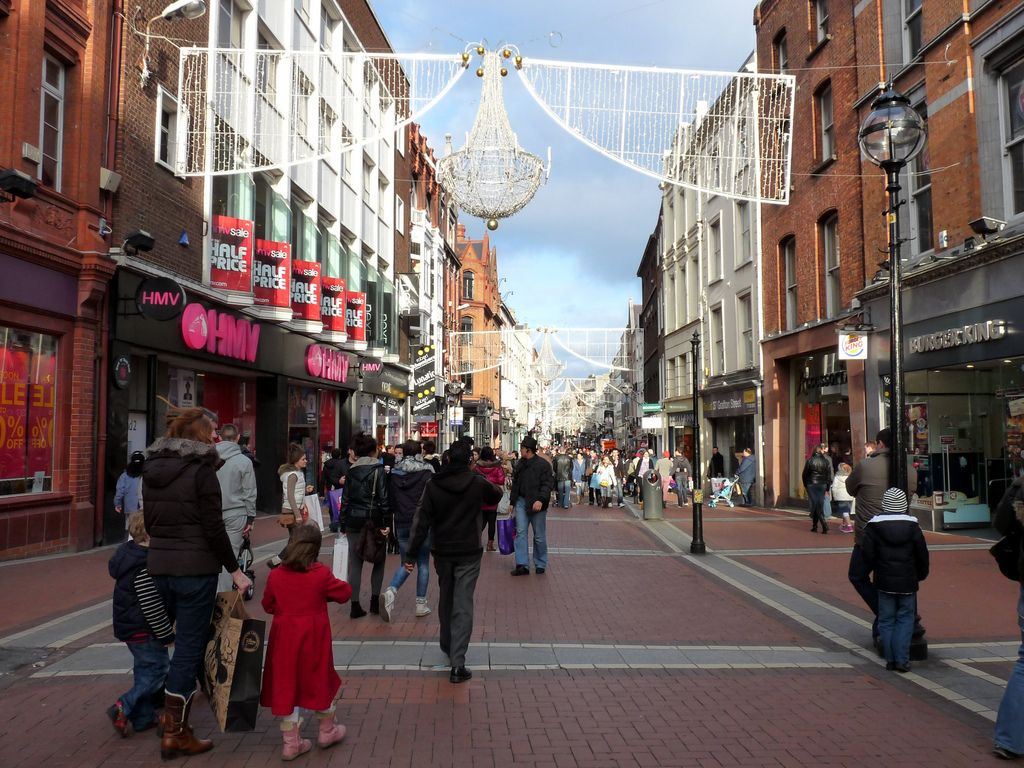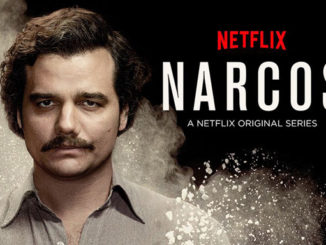
The generation of ‘ceasefire babies’, those born around or after the signing of the Good Friday Agreement, was promised peace, prosperity and a ‘new’ Northern Ireland. Remarkably, peace (compared to what had gone before) was about the only kept promise. The intergenerational trauma endured by both sets of ‘ceasefire babies’, compounded by the lack of opportunity, has left all sides disillusioned with the ‘new’ Northern Ireland. Football may play a role in bringing them together.
The Brexit induced ‘Northern Ireland Protocol’ has caused sectarian tensions to rise throughout Belfast, demonstrating the inherent fragility of the peace process. Politicians and the electorate alike have voiced their fears that the ‘dark days’ may return. Some of the ceasefire generation have suggested the ‘dark days’ never really went away; they just were not as overt. In the words of the late journalist Lyra McKee, sectarianism is ‘like a ghost that refused to depart for the other world’.
Since the signing of the Good Friday Agreement, the IFA have made admirable strides to make the national team a politically neutral environment. The Northern Ireland national team was often seen as a vehicle for sectarianism and division, and that Northern Irish identity was just an extension of Britishness.
Although the more overt signifiers of Loyalism have been eradicated from the national team, there remains acute political identifiers at matches, none more than the flag and national anthem‘God Save the Queen.’
The stipulations of the Good Friday Agreement allowed Nationalist players that were culturally uncomfortable with these identifiers the opportunity to play for the Republic of Ireland team. Defections from Northern Ireland to the south of the border included the Derry trio of James McLean, Shane Duffy and Eunan O’Kane, and Antrim-born Marc Wilson.
Despite the number of defections occurring in the years after the Good Friday Agreement’s signing, many Nationalist leaning players have continued to play for the Green and White Army. Some may not have held such a strong attachment to those political identifiers, but others stayed due to sporting pragmatism.
Although Northern Ireland-born Nationalists playing for the country is commonplace, Dublin-born Darragh Burns representing Northern Ireland is an outlier.
Burns (18), who plays for the League of Ireland’s St. Patrick’s Athletic, has represented Northern Ireland at multiple underage levels. Burns qualifies for the team due to his Belfast-born father, although he was recently apart of the Republic’s U21 squad in Sweden.
“Playing international football is an honour, you just want to make your family proud and make yourself proud.”, Burns said.
Historically, it was not uncommon for players born in the Republic to play for the IFA’s team. Tom Aherne, Con Martin, Reg Ryan and Davy Walsh all infamously played for both the FAI and IFA XI in the same FIFA World Cup qualifying campaign in 1950. However, a 1953 FIFA ruling designated the IFA’s jurisdiction to just the six counties.
Since the infamous dual-nationals of the early 1950s, a Republic-born player has not represented Northern Ireland. Burns believes that his generation is more accepting than that of his fathers.
“When I first walked into the Northern Ireland camp, they didn’t treat me any different. Obviously, I stand out with my Dublin accent, but it didn’t make a difference to the lads that I was from the Republic,” he said.
Burns added, “I think it hasn’t carried through as much with the younger generation. I think it’s settled down; people just worry about football now, not hatred against each other.”
As the conflict ended, the fight turned from guns to symbols. Flags, anthems, venues, colours and GAA jerseys have become ethnic or political markers, all antagonistic to the diametrically opposed communities in Northern Ireland. The most significant grate for many Nationalists is the anthem. Despite his political leanings, as an outsider, Burns feels he must respect the nation he represents.
“Going up there, I respect their national anthem. Don’t get me wrong, I don’t sing it. It’s not my view, but I respect it. I’d like to think if any Northern Irish player played for the Republic, they’d be respectful, so it’s just a part of respect.”
Nationalist players playing in Northern Ireland have often protested the continued use of such an overt political symbol by bowing their heads during the playing of God Save the Queen. The 2018 Irish Cup final between the Catholic associated Cliftonville, and the Unionist associated Coleraine caused political upheaval as some Cliftonville players bowed during the national anthem. North Belfast Sinn Fein MLA, Gerry Kelly, described the actions as ‘dignified protest’, whilst the DUP’s Nelson McCausland described it as ‘demeaning’.
Burns added, “I think it’s a bit disrespectful to bow your head during it, but it’s up to you if you want to sing the national anthem, and for me personally, I don’t sing it. There’s a couple of lads that don’t sing it, and then there are the lads that belt it out as loud as they can because they’re proud.”
“It’s not that deep to most people, but, believe me, there are definitely people there that keep their traditions strong. It still means as much to them as it did for people thirty years ago.”, Burns added.
Burns notes that he falls into the category of players that have pledged allegiance based on sporting pragmatism, and maybe slightly disconnected from the feelings of those who have grown up in the ruins of the peace process. He said, “When I play for the North, it’s not like ‘I’m playing for the Queen here’. It’s a big stage to play on. Anywhere I think I can get noticed or it’s gonna benefit me, I’m just going to take that opportunity with both hands.”
He continued, “I’ve had some great experiences playing for Northern Ireland, especially over in Turkey for the European Qualifiers. Whether I score for Pats (St. Patrick’s Athletic) or score for Northern Ireland, I get the same feeling.”
Despite not growing up on the same streets his father did, Burns notes that he feels the intergenerational trauma that many other ‘ceasefire babies’ contend with.
He said, “I don’t think you’ll ever be able to iron it out; it’s our history, so it’s hard to let go of it.
I think my kids are going to be aware of it, so it will always be there.”
Burns believes that football holds the key to bringing both sides of the community together and will allow the ‘new’ Northern Ireland they were promised to finally come to fruition. “Obviously, there’s still a bit of bite between people, but for most people, they’ve brushed it under the carpet”, he said.
Burns continued, “Since the Good Friday Agreement, people have realised that they have to work together if they want to move forward. In the Northern Ireland setup, it’s just one big family. We work hard for one another, and all that other stuff goes out the window.”
The ‘new’ Northern Ireland identity faces a crisis, Nationalists still feel the symbols and anthems associated with the team are exclusionary, whilst Unionists feel the removal of those symbols is a further erosion of their cultural identity. Football has the power to reconcile the two communities under their common lives in the North. Burns feels that ‘ceasefire babies’ can continue the fight on the pitch, together with but not against each other.
Burns’ said, “It all goes out the window when you step out on the pitch. At the end of the day, we’re fighting for a result, we’re fighting for each other, we’re fighting for the manager and the coaches on the sideline.”
Daniel McCabe



